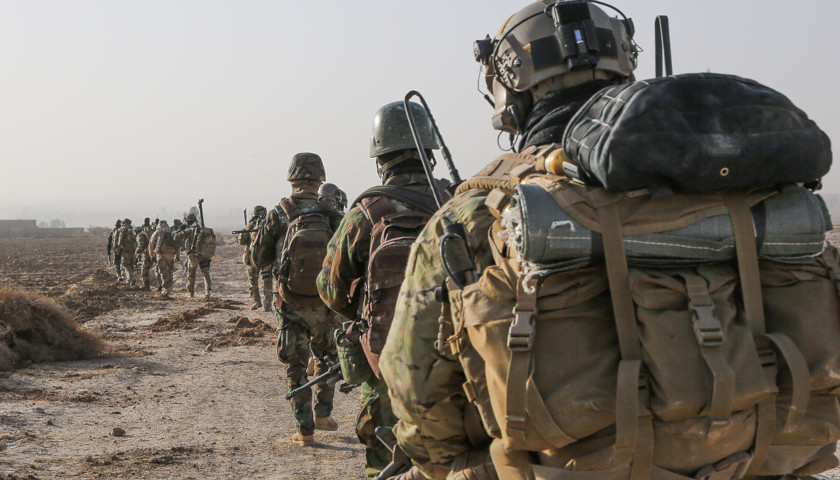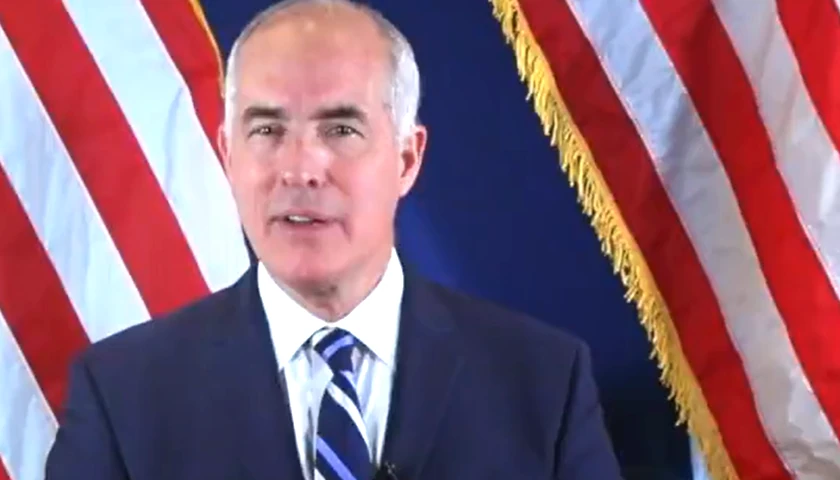The Pentagon is immediately sending 750 more troops to the Middle East after pro-Iranian protesters tried to storm the U.S. embassy in Baghdad on Tuesday.
“This deployment is an appropriate and precautionary action taken in response to increased threat levels against U.S. personnel and facilities,” Defense Secretary Mark Esper said late Tuesday.
Esper said other troops from the rapid response unit of the 82nd Airborne Division are also ready to be deployed over the next several days.
“We rely on host nation forces to assist in the protection of our personnel in country, and we call on the government of Iraq to fulfill its international responsibilities to do so,” Esper said.
U.S. President Donald Trump said the U.S. embassy in Baghdad is safe after pro-Iranian protesters breached the outer edge of the compound Tuesday, using battering rams to smash through a steel door at a visitor’s center.
Protesters chanting “Death to America” set fires and burned a security post before Iraqi security forces drove them back with tear gas and stun grenades. The embassy building itself was not entered or damaged.
The State Department says all U.S. personnel are safe and there are no plans to evacuate anyone.
Secretary of State Mike Pompeo tweeted that those “terrorists” orchestrated the attack. He named Abu Mahdi al Muhandis, Qays al-Khazali, Hadi al-Amari, and Faleh al-Fayyad and posted a picture of all four outside the embassy.
The attack today was orchestrated by terrorists – Abu Mahdi al Muhandis and Qays al-Khazali – and abetted by Iranian proxies – Hadi al Amari and Faleh al-Fayyad. All are pictured below outside our embassy. pic.twitter.com/2QfGGrfmDd
— Secretary Pompeo (@SecPompeo) December 31, 2019
Pompeo stressed that the attack “should not be confused with the legitimate efforts of Iraqi protesters who have been in the streets since October, working for the people of Iraq to end the corruption exported there by the Iranian regime.”
The marchers at the embassy were protesting U.S. airstrikes Sunday targeting an Iranian-backed militia in Iraq and Syria.
Trump says he is holding Iran responsible for any damage or injuries at U.S. facilities.
“They will pay a very big price. This is not a warning. It is a threat,” Trump tweeted. He signed off by saying “Happy New Year.” It is unclear to whom his holiday wish was aimed.
Such a breach of the heavily fortified Green Zone in Baghdad is highly unusual. Although Trump is blaming Iran, Iraqi media reported that government security forces did not intervene to stop protesters from getting into the area.
U.S. airstrikes
U.S. airstrikes Sunday targeted the Iranian-backed Kataeb Hezbollah weapons storage facilities and command centers across Iraq and eastern Syria. At least 25 people were killed and dozens wounded.
U.S. officials say airstrikes were in response to a rocket attack on an Iraqi military base last week that killed a U.S. defense contractor. U.S. officials said the evidence left no doubt Kataeb Hezbollah was responsible.
Iraq says the airstrikes were a “flagrant violation” of its sovereignty, as well as of the rules governing the “goals and principles” of the U.S.-led coalition in Iraq to fight and defeat the Islamic State terror group.
U.S. officials brushed aside such criticism and instead placed blame on Iraq for allowing Iranian proxies to operate at will inside their country despite 11 such attacks on U.S. and coalition forces in the past two months.
“We have warned the Iraqi government many times, and we’ve shared information with them to try to work with them to try to carry out their responsibility to protect us as their invited guests,” a senior U.S. official said. “They have not taken the appropriate steps.”
Kataeb Hezbollah, part of the state-sanctioned militias operating in Iraq known as the Popular Mobilization Forces (PMF), has denied responsibility for the Friday attack that killed the U.S. contractor. But it warned a response would be forthcoming.
Since May, the United States has sent an additional 14,000 forces to the Middle East, along with air and missile defense systems and additional reconnaissance capabilities, in response to what officials see as a growing threat from Iran and its proxies.
U.S. officials say despite the build-up, the increased threat from Iran has yet to diminish.
– – –
Steve Herman, Jeff Seldin and Ed Yeranian contributed to this report.




